Is a Microloan Right for Your Small Business
Lets Get Started
Securing adequate funding is often a pivotal factor in determining the success or failure of a small business venture. For many small business owners, small business loans can be challenging to obtain due to stringent eligibility criteria and lengthy approval processes. In such scenarios, microloans present themselves as an attractive alternative, offering accessible funding tailored to the needs of budding entrepreneurs and established businesses alike. In this comprehensive guide, we explore the intricacies of microloans, shedding light on their suitability for small business owners and delving into their pros and cons.
Understanding Microloans: What Are They and How Do They Work?
Microloans, as the name suggests, are small-scale loans typically ranging from a few hundred to several thousand dollars, designed to provide financial assistance to entrepreneurs who may not qualify for bank loans. Unlike banks and other lenders, microlenders are often nonprofit organizations (rather than for-profit banks) or community-based organizations that prioritize social impact over profit margins. These loans are characterized by lenient eligibility requirements, simplified application processes, and flexible repayment terms*, making them an accessible financing option for a wide range of businesses.
The Pros of Microloans for Small Business Owners
Accessibility
Microloans offer a lifeline to entrepreneurs who may face barriers when seeking financing from SBA loans. With less stringent eligibility criteria, these loans are more accessible to borrowers with limited credit history or imperfect credit scores making for a less daunting loan application process.
Speed
Unlike working with traditional lenders from a bank that may take weeks or even months to secure, microloans boast faster approval and funding processes. For small business owners in need of immediate working capital, this expedited timeline can be a game-changer if they need small amounts of money.
Flexible Repayment Terms
Microloans typically feature flexible repayment terms, allowing borrowers to tailor their payment schedules according to their cash flow and business needs. This adaptability reduces the financial strain on businesses, particularly during periods of fluctuating revenue.
Social Impact
By partnering with microlenders, small business owners contribute to the empowerment of underserved communities and support the growth of local economies. Microloans often prioritize funding initiatives in sectors such as childcare centers, minority-owned enterprises, and women-owned businesses, fostering diversity and inclusion in the business landscape.
The Cons of Microloans: What Small Business Owners Should Consider
Higher Interest Rates
While microloans offer accessibility and flexibility, they often come with higher interest rates compared to bank loans. Small business owners should carefully weigh the cost of borrowing against the benefits to ensure that the loan aligns with their long-term financial goals.
Limited Loan Amounts
Due to their small-scale nature, microloans may not provide sufficient funding for large-scale business initiatives or expansion plans. Small business owners requiring substantial capital investments may need to explore alternative financing options or combine microloans with other funding sources.
Personal Guarantee
In some cases, microlenders may require small business owners to provide a personal guarantee, putting personal assets at risk in the event of default. While this is a common practice among lenders, it adds an additional layer of risk for borrowers to consider.
Eligibility Requirements for Microloans: Who Qualifies?
Microloans cater to a diverse range of borrowers, including new businesses, minority-owned enterprises, and entrepreneurs with limited credit history. While eligibility criteria may vary depending on the microlender and the specific loan program, common requirements include:
A well-defined business plan outlining the purpose of the loan and the projected use of funds.
Proof of steady cash flow and sufficient revenue generation to support loan repayment.
Demonstration of the borrower’s commitment to the business through personal investment and entrepreneurial experience.
The minimum credit score requirement for a microloan can vary depending on the lender and the specific loan program, but your credit report will likely need to be 620 or higher in many cases.
SBA Microloans: A Pathway to Small Business Financing
The U.S. Small Business Administration (SBA) plays a crucial role in facilitating access to microloans through its Microloan Program. This initiative partners with nonprofit intermediary lenders to provide small business owners with funding of up to $50,000, along with technical assistance and mentoring support. While the SBA Microloan Program shares many similarities with traditional microloans, its affiliation with the SBA lends credibility and assurance to borrowers, making it an attractive option for those seeking reliable financing solutions.
Is a Microloan Right for Your Small Business?
Ultimately, the decision to pursue a microloan hinges on the unique needs and circumstances of each small business owner. While microloans offer accessibility, speed, and flexibility, they also come with inherent risks and limitations that require careful consideration. Small business owners should assess their financial situation, evaluate their funding options, and weigh the pros and cons of microloans before making an informed decision.
MCAs Providers: An Alternative Financing Solution
In addition to microloans, small business owners seeking expedited funding may explore Merchant Cash Advances (MCAs) as an alternative financing option. Unlike ban loans or lines of credit, MCAs offer a streamlined application process, rapid funding turnaround (often within a single business day), and flexible repayment structures based on future revenue. With no real estate collateral required and lenient credit score requirements (yes, even those with bad credit), MCAs provide accessible financing solutions for businesses of all sizes, including startups and those with imperfect credit histories. All you’ll need to apply is 3-4 months of business bank account statements.
Conclusion
As small business owners navigate the complex landscape of various types of business financing, microloans emerge as a viable loan option for those in need of accessible funding and supportive lending environments who are looking to avoid traditional financial institutions and traditional bank loans. With their emphasis on social impact, flexibility, and inclusivity, microloans empower entrepreneurs to realize their business aspirations and contribute to the growth of vibrant, thriving communities. By understanding the nuances of microloans and exploring alternative financing options such as MCAs, small business owners can make informed decisions that propel their ventures towards sustainable success.
*Repayment in this context describes the process of repurchasing a merchant cash advance. It does not describe the process of repaying a loan. MCAs are legally distinct from loan products.





